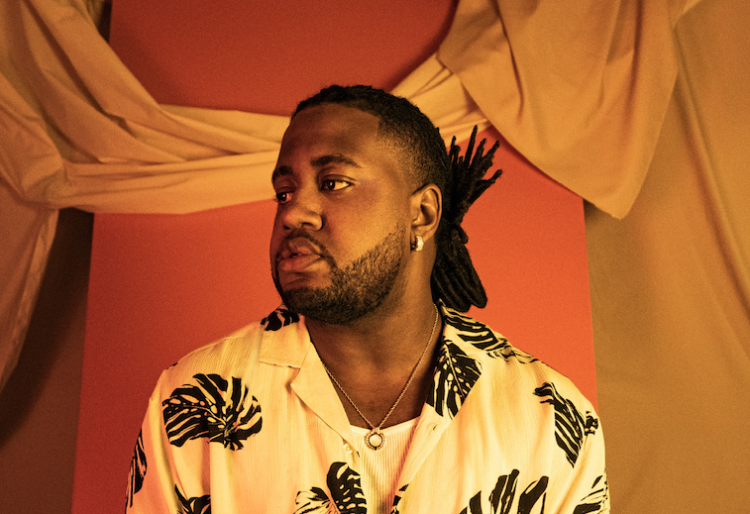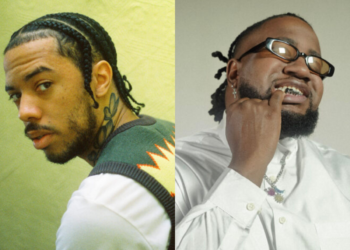A long-established image cliché for a male R&B singer is to be single and maximize his options. In many ways, Xavier Omär is the antithesis of the familiar facade we’ve deemed the baseline for normality within the genre.
Omär celebrated the one year anniversary of marriage to his beautiful wife Christin in March, right in the middle of recording his new album, if You Feel, which is out now.
While fans are used to hearing him unabashedly express his emotions about love and relationships, if You Feel unveils another side that they’ll be happy to welcome with eager ears. Embedded between the expected love songs are experiences of Omär’s self-reflection, as well as his relationship with himself and his religious faith.
If you’re familiar with Omär’s work, you’ll know that incorporating Christianity in his music isn’t a recent revelation. Previously known as SPZRKT, the inspiring content dates back to 2013 when he began to release music.
The majority of his listeners joined his dedicated flock in 2015 when he released the collaborative album Hours Spent Loving You with his good friend and prolific producer, Sango. The ethereally rhythmic project, released under the Soulection imprint and exclusively on Soundcloud at the time, explores their earthly and heavenly view of relationships. Those songs exposed Omär to a solid core of supportive people who began to follow his burgeoning career.
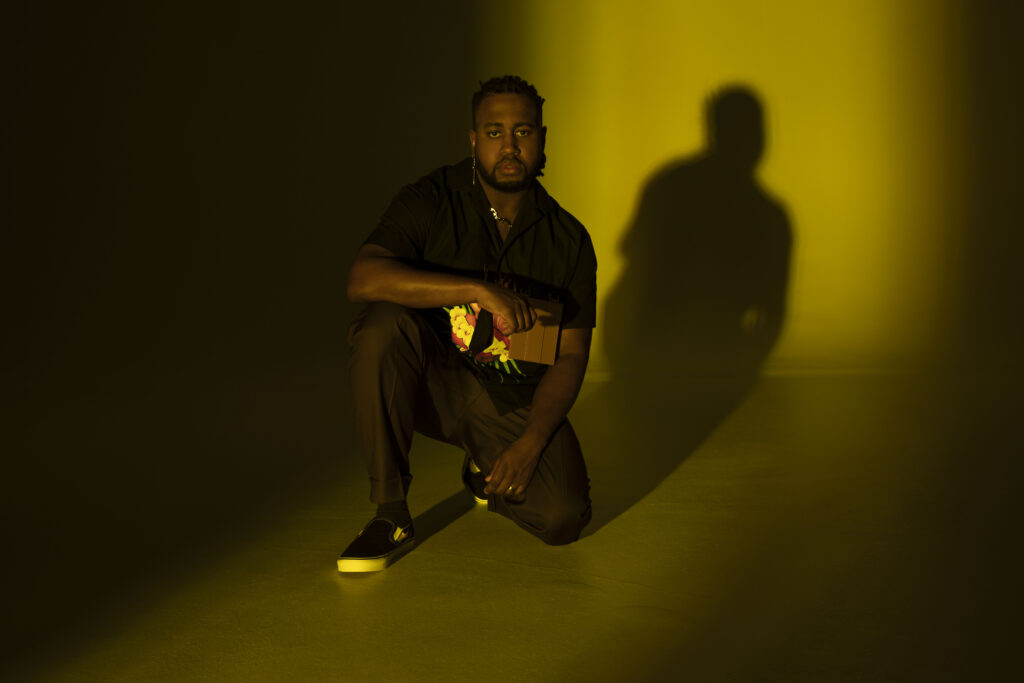
His official solo moment came the following year when he released The Everlasting Wave, his debut EP as Xavier Omär. Continuing to ride the steadily developing wave, he signed to RCA Records in September 2019, and, a month later, united Omär reunited with Sango to present Moments Spent Loving You, the highly expected follow up to Hours, which showcased their matured harmonious contemplations of romance.
If You Feel opens with the infectiously electric groove “Find Me.” Featuring both a VanJess sample and their live vocals, the first track isn’t a sound we’re familiar with from Omär, but the unexpected number is bound to get fans excitedly on their feet. He enlists Masego, another good friend, on the sultry and charmingly audacious number “Surf,” making post-marital pleasure sound just as arousing as the song itself. The album continues to highlight nuances of Omär’s solid discography, rooted in the authentic vulnerability that has innately captured followers from the beginning.
In an intimate interview with Rated R&B, the celestially nurturing voice shared his intent with his new album, how marriage has affected his songwriting, and the responsibility he proudly accepts as an artist.
First off, congratulations on your marriage! You already were writing and singing love songs before you got married, but how did that influence your creative approach for this new album if You Feel?
I don’t think it changed the approach. When you start to think about an R&B artist, who’s now married, a lot of those songs, especially the good songs, are going to be about that relationship. There are still many stories to tell outside of that as well, like stories introspectively from within that I just hadn’t told yet — things that I was still processing about myself and things that the marriage helped me figure out about myself. There’s like two or three songs where I really just looked in the mirror and just dealt with some things. That’s been the best part of it because that makes me better.
Would you say that’s the first time that you’ve been so introspective and sharing that in the music? I feel it’s mostly been about the relationships and that side, but we don’t necessarily get to hear how you feel about yourself from your perspective.
Yeah, it’s one of the first times I really focused on it for sure. Everything up to this point, I have been focused on just trying to help people because I feel that’s my purpose with music. I was learning from my own pain and trying to form that in a way that could help people who might go through the same thing. Everything’s always been about being relatable and helping people in relationships because I believe that God’s purpose for me in music was to show people a godly perspective of what relationships are.
What was your intention when recording and creating if You Feel?
The intention was to show people me again because what gets lost is so many fans found out about me from working with Sango on our first project, Hours Spent Loving You. So, obviously, my first major label project that I did was with Sango was Moments Spent Love You. I knew people wanted us to work again. I mean, I love him. He’s my brother. I wanted to work with him on a full project again as well, but we have our own sounds apart from each other and we have our own sound together.
I think people were beginning to think that his sound was mine. I had this period after Hours Spent Loving You where I was like, ‘I’m not going to work with Sango for a bit, I’m just going to do my own thing.’ I felt like I needed a statement project. He’s on the [new] album because that’s my boy. I needed to expand the horizon sonically to be able to express many more styles of what I would like to do. That was the aim. I wanted something similar to The Everlasting Wave. On The Everlasting Wave, I did eight different styles of R&B on purpose because my whole point was to prove that I wasn’t just an artist a part of the SoundCloud wave. This time around I’m not out to prove much other than to bring people in. I needed that sonically and of course, lyrically. I always want to bring something different, something more thoughtful than what we’re used to hearing.
As a fan and a listener, I’ve felt you’ve always opened up about your emotions through each project and on songs like the Dru Hill sampled “want/need” and “SURF,” you’re exploring your more mature and grown man side. What made you feel comfortable to open up that side of yourself, particularly on this new album, as opposed to previous records?
It’s very free being married as an artist, coming from my background, because I’m obviously having sex. Why would I not be allowed to talk about it? You can try to police all these other parts of my life if you’d like to, I don’t really care, but this is something you definitely can’t try to police. I lowkey waited until the coast was 100 percent clear, but no matter what anybody said at this point and forward, it just doesn’t matter because it’s a fact of my life now and it’s a good, healthy part of my life. That’s part of why I have the parental advisory sticker. There’s only like one word you’d even have to bleep out on the whole album. But part of it was just a small warning in some areas saying you used to be able to play every last song around your kids and now, you’re gonna have like one song to skip, just give you that little warning. More than anything, it’s fun. Those records are dope.
“Bon Iverre” is such a relatable song, especially given the times that we’re in. There’s a voice note at the end discussing the meaning of life and how “this life is secondary and maybe there’s something eternal that’s primary that we should be living for.” What can you say are some of the things that you’re living for?
My faith is in Jesus — and that’s not simply from my upbringing because I actually rejected it by the time I was 19. There was a soul search to figure out what was real to me. I’ve been relearning my faith ever since then and just finding new things all the time. Also, knowing that I’m not just here randomly or just here to do whatever I want. I truly have purpose. In that, I’m able to realize what else is worth living for, which is helping whoever is around. Whether it’s through the music and just with my one-on-one time with people. I want to be able to elevate people, in personal lives and relationships. It has to be more than about me and what I’m going to get. Obviously, I have to take care of myself and there’s things that I do need that I want. It is a balance. It just can’t be me. I need to be giving of my time and resources to better things around me.
It’s obvious that church and gospel music is a big influence in your sound. You’re clearly very firm in your faith and your Christianity and you don’t shy away from that in your music. How do you keep that balance of touching on that without coming off sanctimonious in the music?
I’m so honest everywhere else that people understand that when I do say something about God in my music, that is genuine. It doesn’t come across as like God is just a piece. You hear sometimes when people are accepting awards or when they’re making ridiculous songs and there’s a random ‘Thank God’ in there about something. It sounds like something that’s like a real part of my life. You can line that up with all the songs that I’ve dropped, all the things that I’ve done. I think that makes it more palatable for people. Sometimes I trick them, like with songs like “JMK.” It’s Jesus My King. I knew that if I put that, maybe they don’t press play. So it was like, “Hey, press play and just see if you like the song.” I feel that I don’t overdo it, number one, because I have a lot more ways to relate to people. That’s the biggest piece of it all.
On my song “More Than Less,” there’s a line “I say tweak my Christianity in Jesus’s name, call me critical.” The whole thought process for that isn’t so much like, “Oh, I went from Christian to something else,” as much as it’s I realized that my Christianity was wrong and needed to be changed. I’m not trying to necessarily come across as this super perfect person.
Your stance and space in R&B are opposite of what’s popular, especially with your lyrics that focus on faith, relationships, self-reflection, in-depth topics like that. Why do you think that works and you consider this as your responsibility as an artist?
I do consider it my responsibility. I’m not 100 percent sure it works. I mean, that’s not to demean or undermine, all the fans that have shown love, that come to the shows and are streaming the music. I don’t know that it works on a massive level, but it does at least work on this level. I’ve done a study recently, but I don’t want to get too much into it, but I think 99.4 percent of major pop songs have some type of violence in them of some sort. I think it showed that hip-hop/rap is the number one general in America, but it’s also the genre that’s most likely to demean and disrespect and put down women. When you look at the stats of what does well, I’m not sure how well it could do on a massive scale.
It’s my responsibility to make the music that I make with the content that I make, to be a difference. To show that it doesn’t necessarily have to be that way for it to sound good, to be good, to connect to people. If I can get however many millions of streams on a song like what “Blind Man” has gotten, then I don’t understand why people who are more popular than me wouldn’t do that now. If it’s just not in their heart, that’s one thing. If they’re just avoiding it, that’s another thing. If I have to be one of many people who take these stances and take these chances as well to just do something against the grain to see how it works, then I’m happy to be a part of that. I hope more people gravitate toward the content that I make.
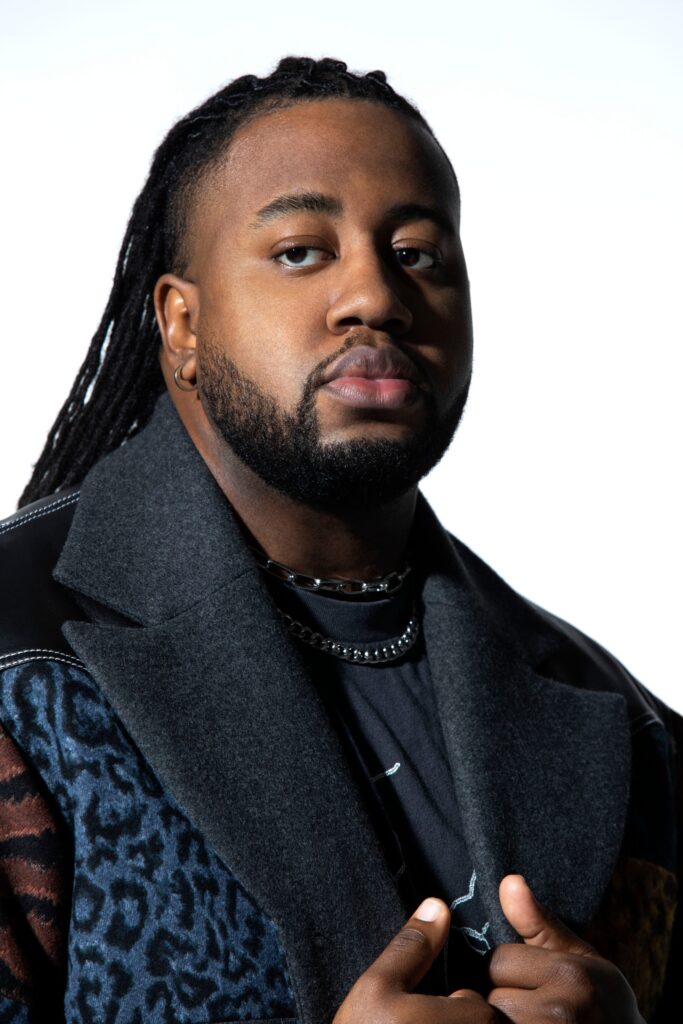
The last album Moments Spent Loving You was the long-awaited and anticipated follow up to Hours and it was your first major label release. How was that experience creating an album, being signed to a major label, as opposed to when you were an indie artist.
It’s weird because I’m finding out what it’s like to be on a major label on this album. With Sango, we did Moments the way we did Hours. The only difference between that is we actually had a week in person together. With the exception of that week, we worked over email. We were FaceTiming here and there. We did it how we did the first one, but because of that, we were our own A&Rs to a degree. We didn’t have to go find producers for me. He’s the producer. We didn’t have to go find artists to work with, but we knew who we wanted to work with and we’re friends with them. It wasn’t a difficult process or a process that needed the label.
[For] this album, I did eight sessions in LA, but I was supposed to do 23. Having all those sessions set up with all these producers, I had never worked with that. I had only worked with Bizness Boi before, but everybody else I had never worked with, never met. That was really new for me. The process of working in the studio with people is a big process for me. I tend to work here at the house. There’s a lot of attention focused on each and every song, but it’s all necessary. Making sure it’s promoted well, to make sure that everyone’s on the same page can be more difficult than it seems. So this experience for if You Feel has been different but going well and I think I’m learning how to work within the system of a major label.
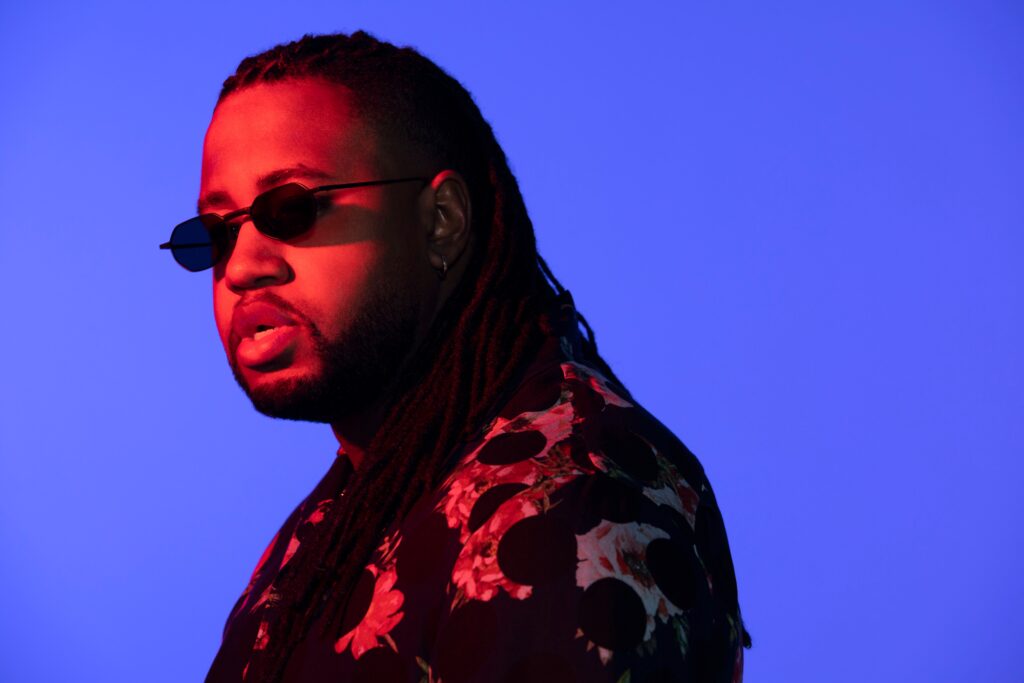
You’ve definitely evolved from each project. With Hours Spent Loving You, you lean more towards the electronic side and you and Sango solidified your sound. The Everlasting Wave had different versions and sounds of R&B and you got to flex your vocals a bit more. Pink Lightning was a bit softer, had some acoustic vibes and Moments expounded on Hours. How do you protect your sound while still continuing to grow as an artist?
I think knowing what it is you want to do and what emotions you want to evoke when you make your music. The best thing about me being diverse as I am when it comes to my sound, is that it’s really hard to copy. It feels like me uniquely when I do it because I’m the only person that does it so consistently in these ways. I do my best to not give the same thing over and over. I don’t want to be too predictable. I want to give them something they haven’t felt yet or a way to think about something in a way they hadn’t before.
It just gives me an opportunity to fully explore all of my influences musically and the ways that I’m able to transfer that into my sound. So sharing that with people is a big part of why I don’t think I’ll ever have to worry about losing the sound because I have not gone through all my influences quite yet.
What do you hope is the main takeaway when fans listen to if You Feel?
Hmmm, I guess I haven’t truly thought about that. I think I want them to be able to feel each and every emotion. Fully feel every emotion that this album brings up in your heart and in your mind and just live with it. Let it do its healing. Let it do whatever it’s going to do for you, that’s what I would want people to step away with.


